International Day of
Women and Girls in Science
11 February 2022
Celebrating full and equal access to and
participation in science for women and girls
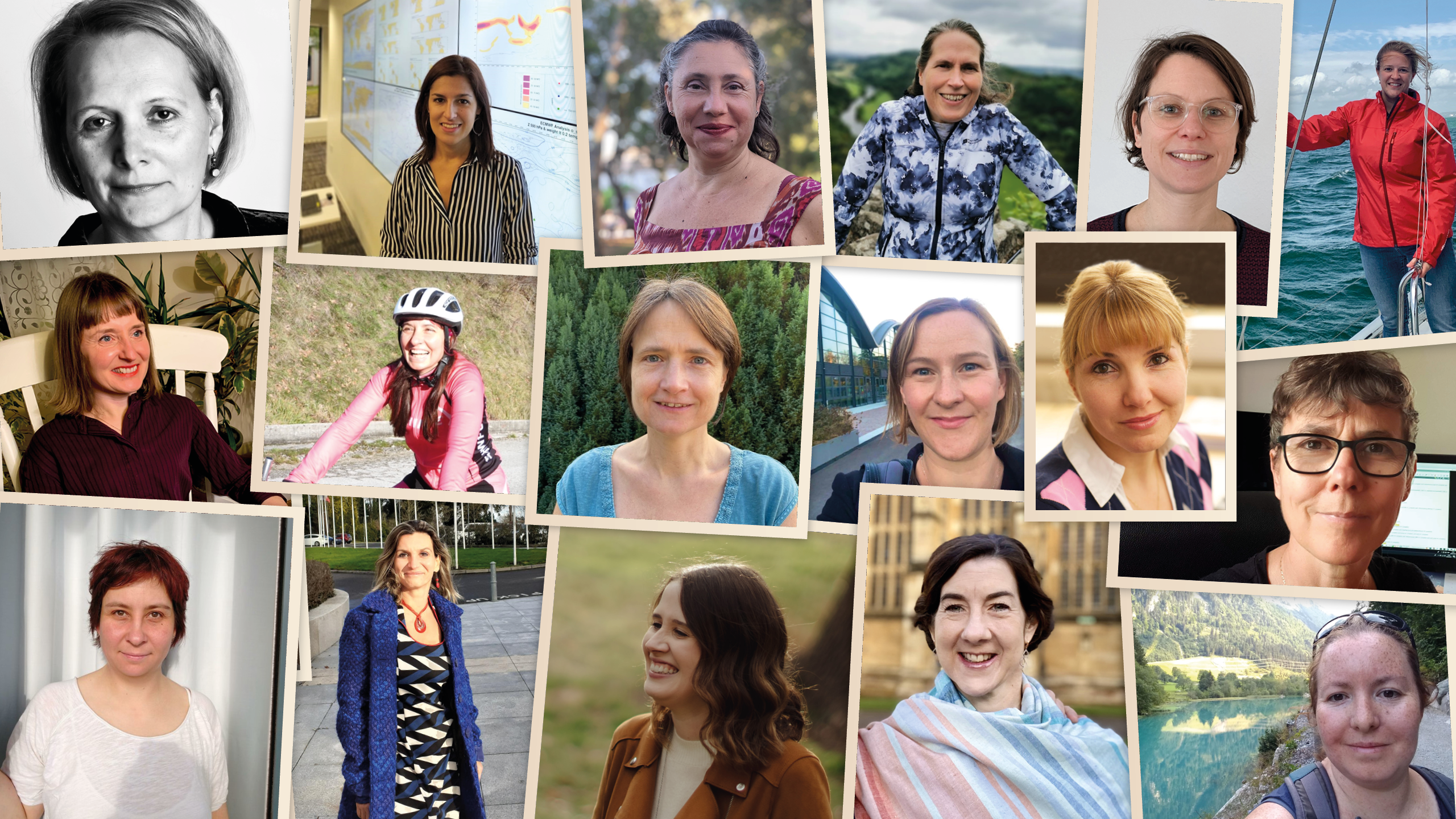
Antje Weisheimer
Senior Scientist
Area: Seasonal forecasting and its uncertainties
My research is around the predictability of weather and climate from months to years ahead: What drives changes in the climate system, specifically in the atmosphere? What do we need to predict these changes? Trying to better understand how that complex system of nature works motivates my work.
Being able to feel the weather, the very subject of my studies, literally on my face by just stepping outside the house is, I believe, a privilege that not many other scientists share with us. Equally important to being mesmerised by your science is finding people you enjoy working with.
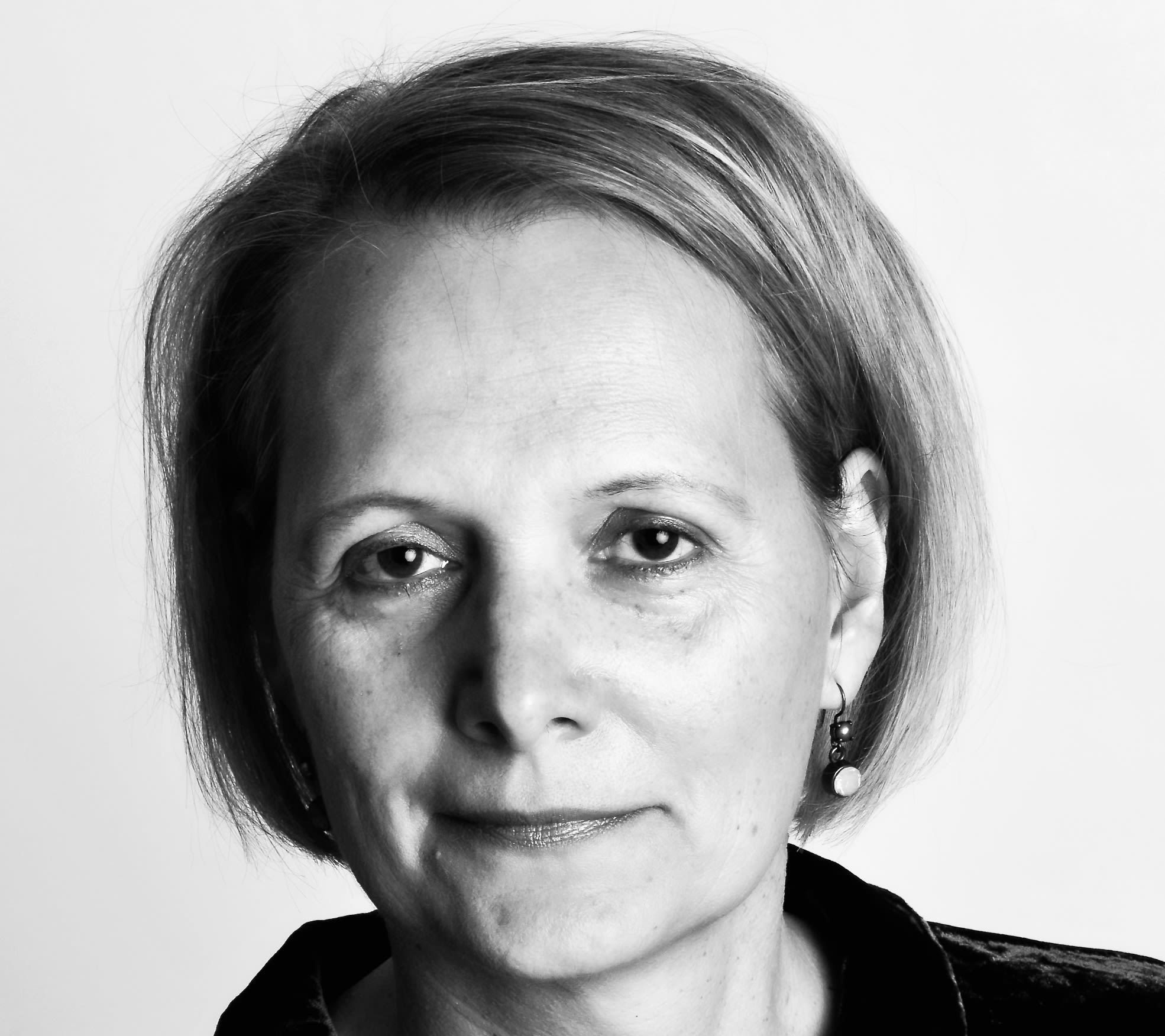
Jenny Rourke
Head of Production Services Section
Area: All aspects of producing weather forecasts
As a senior manager I am responsible for ensuring that my team’s work will allow ECMWF to deliver its annual plan and longer-term strategy. Ensuring our teams are well supported and working efficiently is important. I aim to focus on providing empathy and empowerment to every single person that makes the science happen so we can work well together to achieve great advances.
Women are particularly powerful when we focus on stretching our strengths to overcome scientific and everyday challenges. I encourage everyone to take opportunities as they come by – even if they feel scary, you can do it!
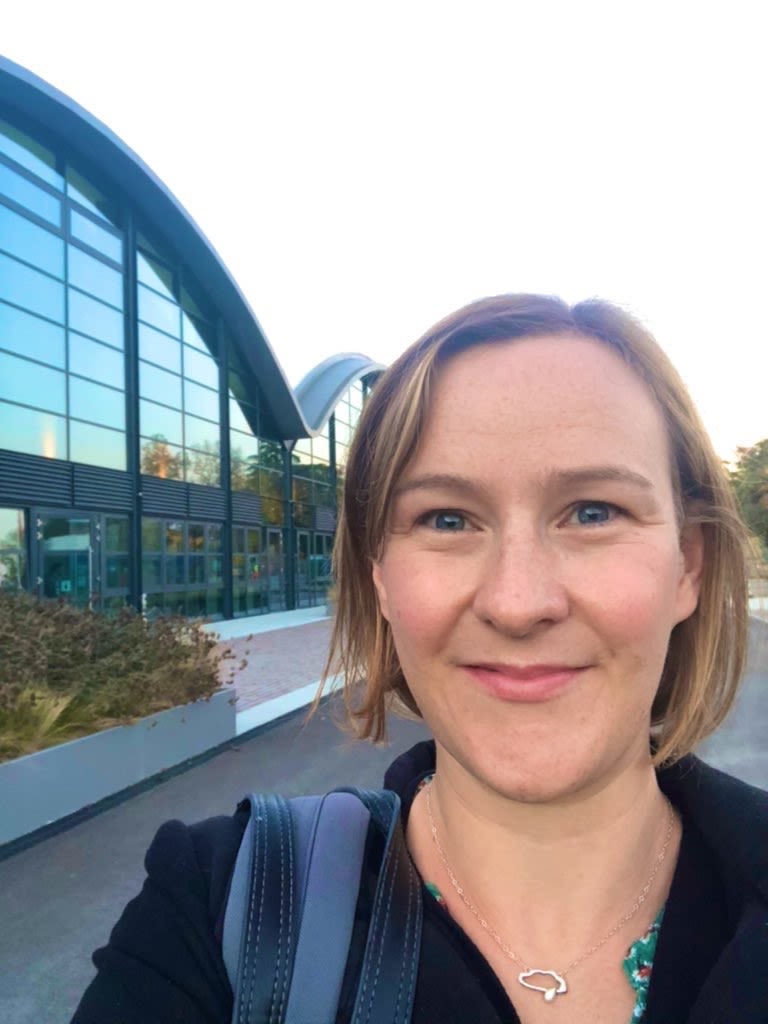
Patricia de Rosnay
Principal Scientist
Area: Bringing information on the land and ocean into forecasts
Weather forecasting is of huge benefit to society, and I am extremely proud that I contribute to this. My work is around developing methods and using satellite and surface observations to understand, monitor and predict the evolution of our weather and climate. The Earth system is highly complex, and my goal is to improve our weather prediction systems beyond the state of the art.
Science goes beyond any gender considerations. My advice to women and men who share my fascination with science is to believe in yourself and follow your passion!
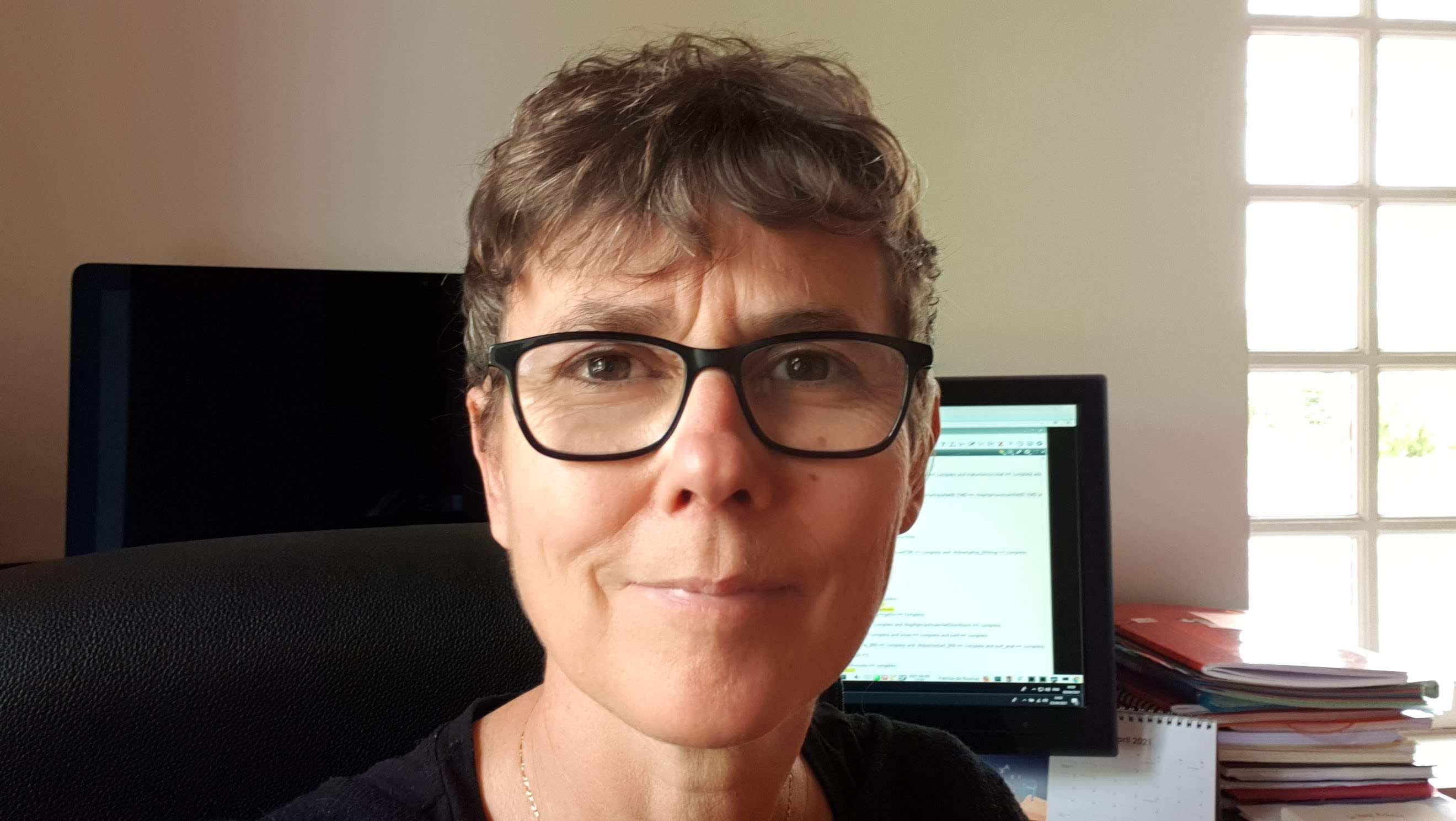
Christel Prudhomme
Environmental Forecasts Team Leader
Area: Flood awareness and early warning systems
Science wasn’t a deliberate career choice for me; it just happened! I always realised how important water is to all aspects of life, and I wanted to work in an area that was useful to people. Running an operational service around flooding that is used by many people every day is a great fit for me.Many women undervalue themselves; I encourage everyone to believe in their ideas and how valuable their careers and contributions are. I am a tough boss, but I aim to provide colleagues the support and opportunities they need to achieve their goals and be satisfied in their career.
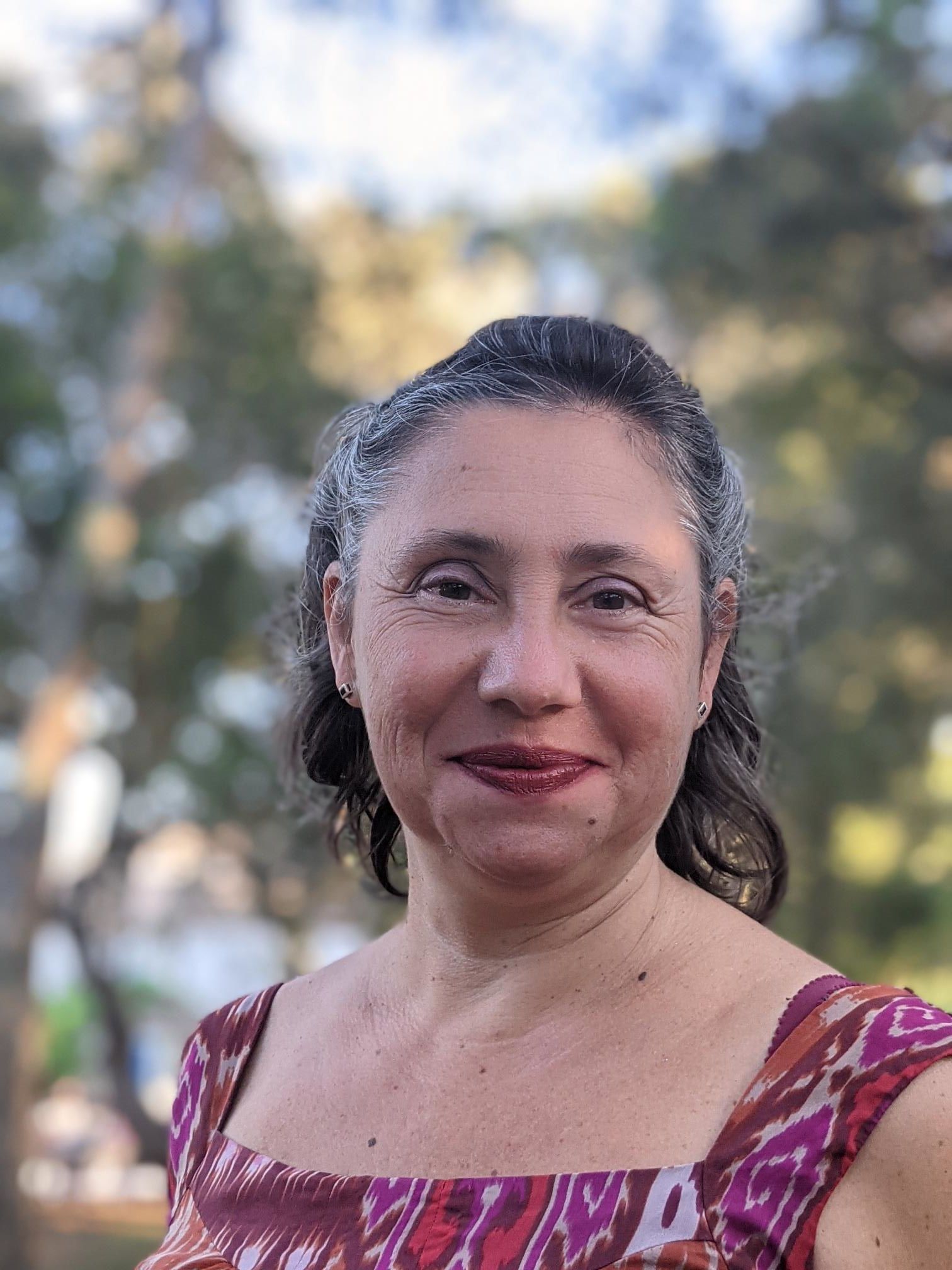
Estíbaliz Gascón
Scientist
Area: Evaluating, analysing and developing weather forecasts
Severe weather events have been my passion since I was a child, and it has been a privilege to dedicate my career to investigating them. Knowing that this may help prevent weather-related risks and benefit society gives me great satisfaction. I am particularly proud of being a member of the ECMWF Daily Report team, which evaluates the performance of our forecast models.
My advice for any scientist is that if you want something, don't limit yourself – until you get the opportunity to try, you don’t know what you might achieve! I thought I would not fit into a place as advanced as ECMWF, but they have supported me to flourish.
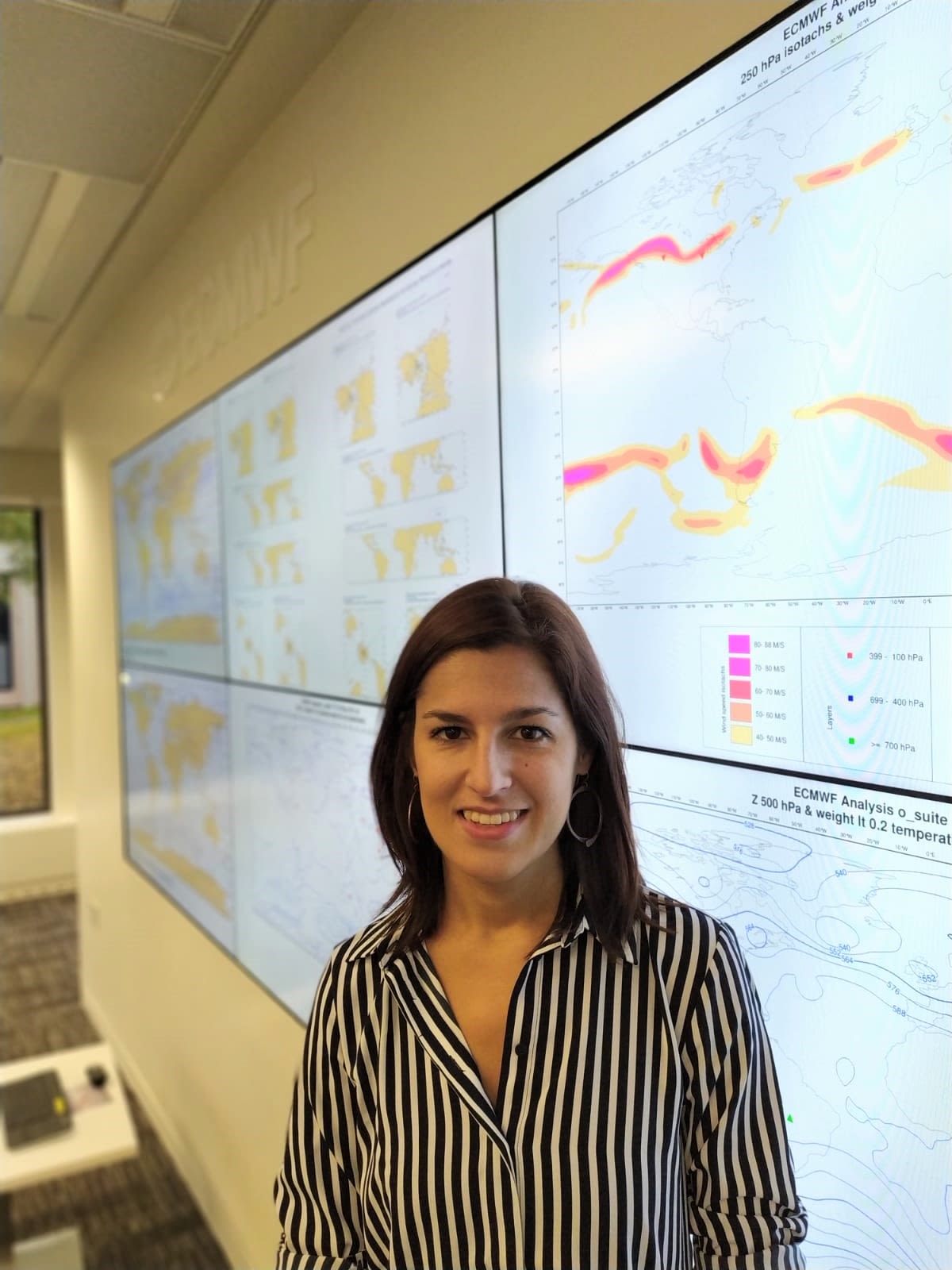
Helen Setchell
User Experience and Content Architecture Coordinator
Area: User outreach and engagement
My role focuses on making sure that users have a positive experience of the ECMWF web. I work with colleagues to ensure that the technology in the background supports the creation, delivery, and consumption of content, and results in a fulfilling user experience.
I have been lucky enough to not to have to think about being a woman in science as being different, so my advice to everyone is if you love it, keep doing it! For example, I would like to understand a lot more about our ecosystem and to get involved in helping ensure it continues to support healthy human life.
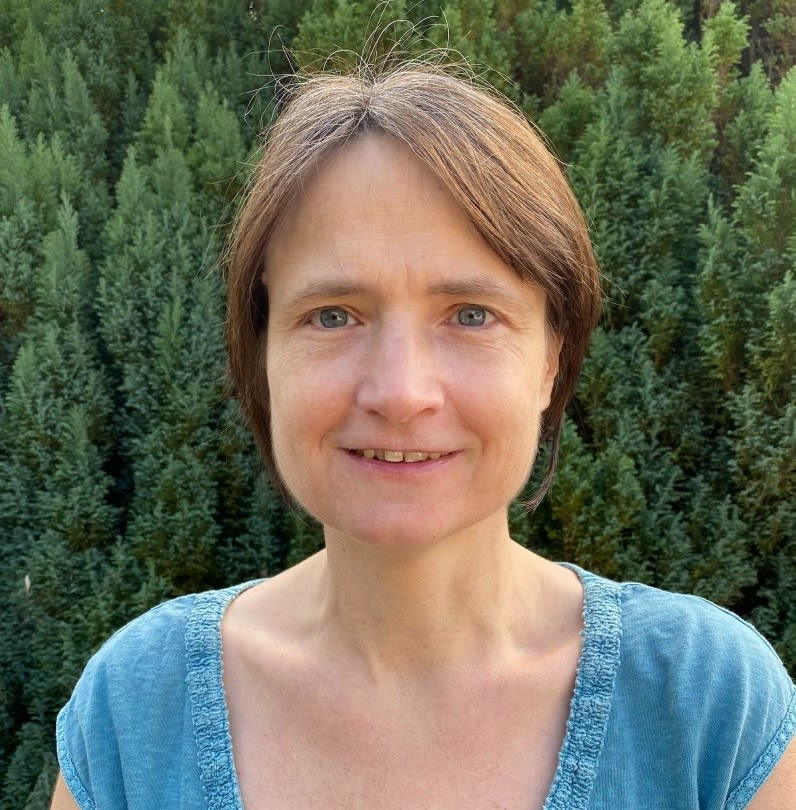
Christine Kitchen
Deputy Director of Computing
Area: Supporting high-performance computing facilities
I originally worked in chemistry, but I ended up in supercomputing despite no formal qualifications in the area! Designing state-of-the-art services that support research aspirations is extremely rewarding. I am also keen to encourage a clear career trajectory for people interested in support roles in high performance computing.
Those with a passion for research and science should trust their instincts and be prepared to follow opportunities as they arise. While they can take you out of your comfort zone, they can also be exciting. Science is constantly evolving, so everyone is learning together.
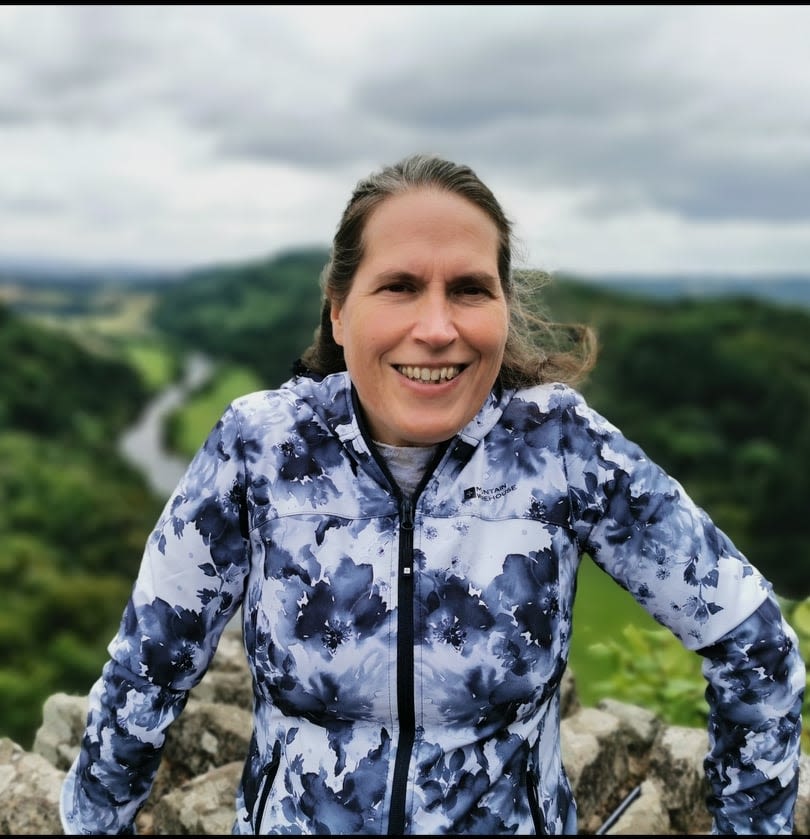
Emma Pidduck
Account Manager
Area: Supporting users in getting the data they need
My work contributes towards helping users make the most of ECMWF data; in part by providing data support, but also by working on the transition towards open data which are freely shared. I hope that encouraging users to work together will spur more collaborative projects and encourage an open, less competitive approach to solving problems, especially those – like weather and climate – that impact everyone.
It's important to remember that every contribution to science is valid, so own your contribution and be proud of it – don't let anyone tell you that because you may have changed your career path, your area of study or your interests, you aren't a scientist.
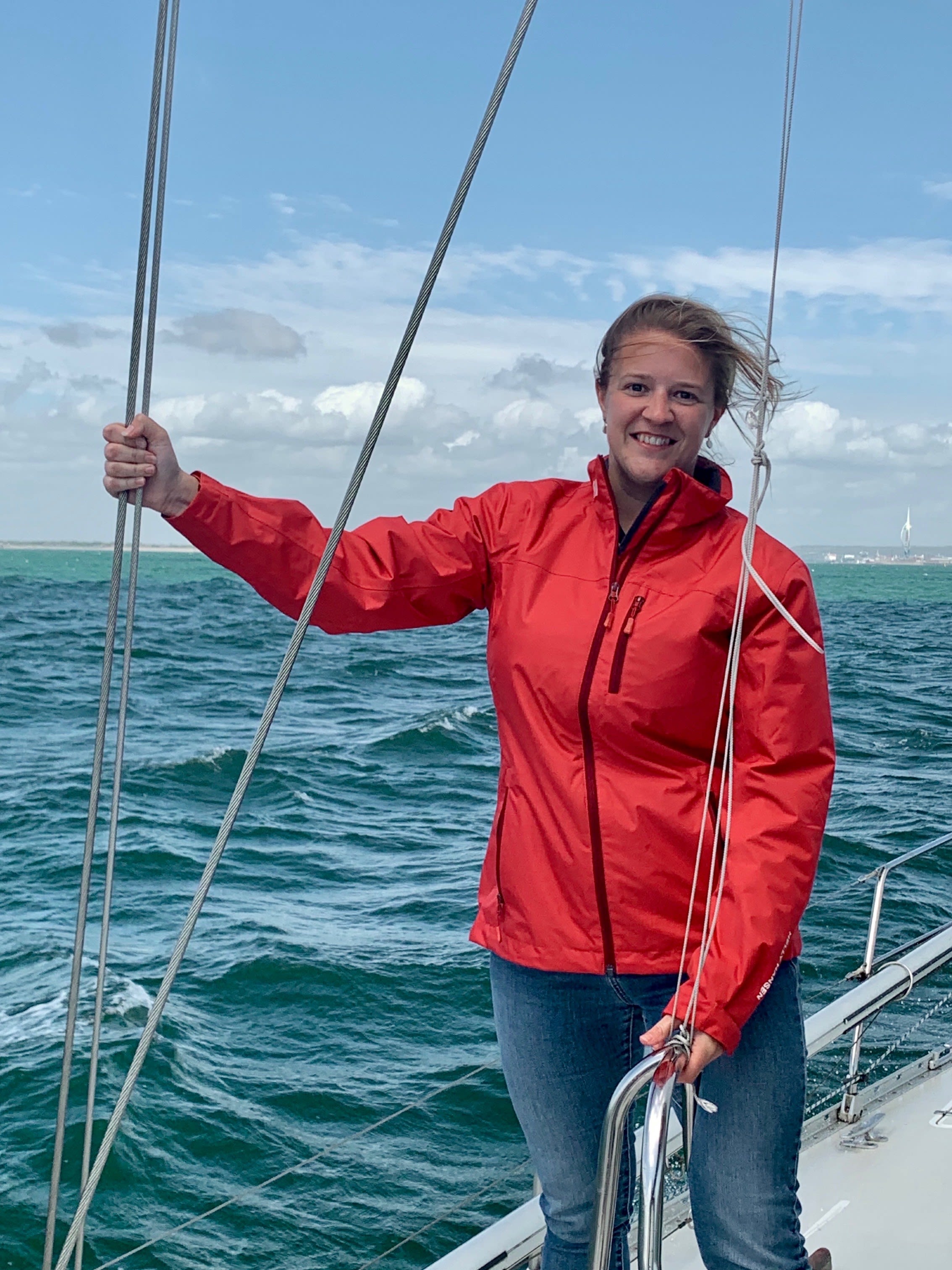
Milana Vuckovic
Analyst
Area: Supporting the use of open data
My biggest motivation is when my work finds its way to the end users and makes someone else's life a bit easier! For example, I hope that my current task of building tools to help users reproduce our free weather charts contributes to better accessibility and usability of ECMWF data and software.
It is important to never stop learning and to never give up after a failure, as that is a learning opportunity as well. Surround yourself with people who motivate you and always pay it forward by helping and encouraging younger colleagues..
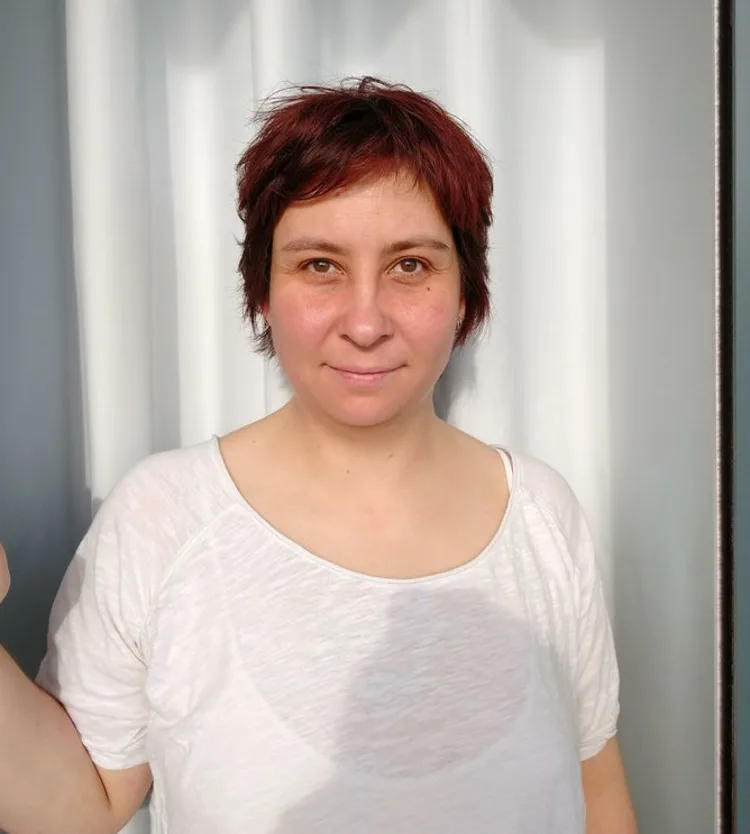
Rebecca Emerton
Scientist
Area: Understanding the performance of forecasts
Extreme weather has fascinated me since I was a kid, so it is great to be working in a team, and at an organisation, where I can have a real impact on understanding the performance and usability of forecasts. My research work in diagnostics covers a range of topics, such as heatwaves and tropical cyclones, which keeps things interesting.
Science is for all genders and nobody should feel they need to change to fit a certain mould or stereotype. The advice that’s often given to me by one of the many women in science I’ve been fortunate enough to work with is just two words: ‘be brave’.
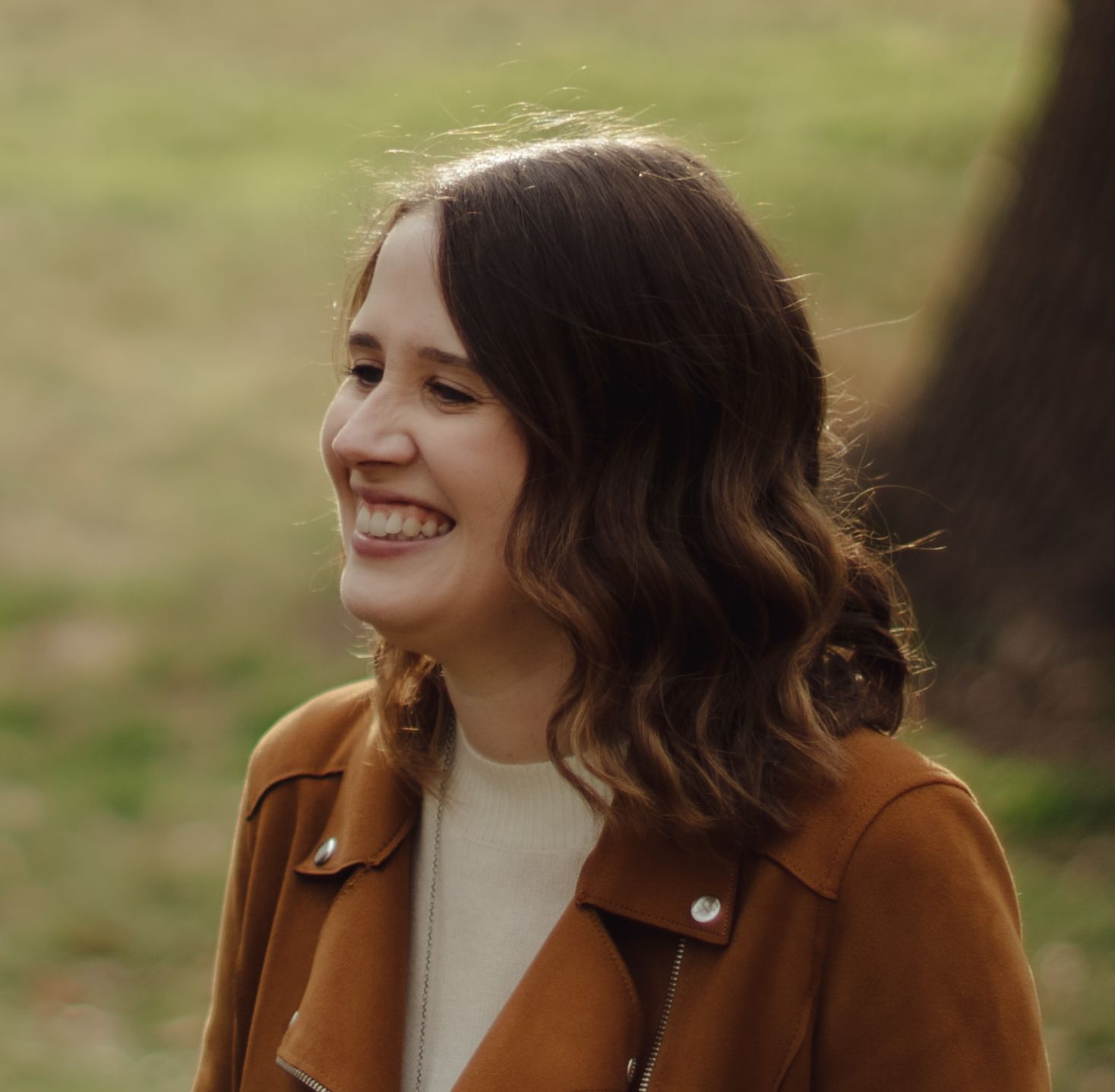
Marijana Crepulja
Analyst/Scientist
Area: Data standards and representation of observations
As ECMWF representative on the World Meteorological Organization expert team on data formats, my work centres on developing models and regulations around how observations are represented and how data are exchanged. I also help other scientists handle observations by training them in data and its associated storage systems.
It is a gift and an honour for anyone to work in science. I encourage all my colleagues to enhance their flair for discovery. Together we can help to improve the environment and people's lives.
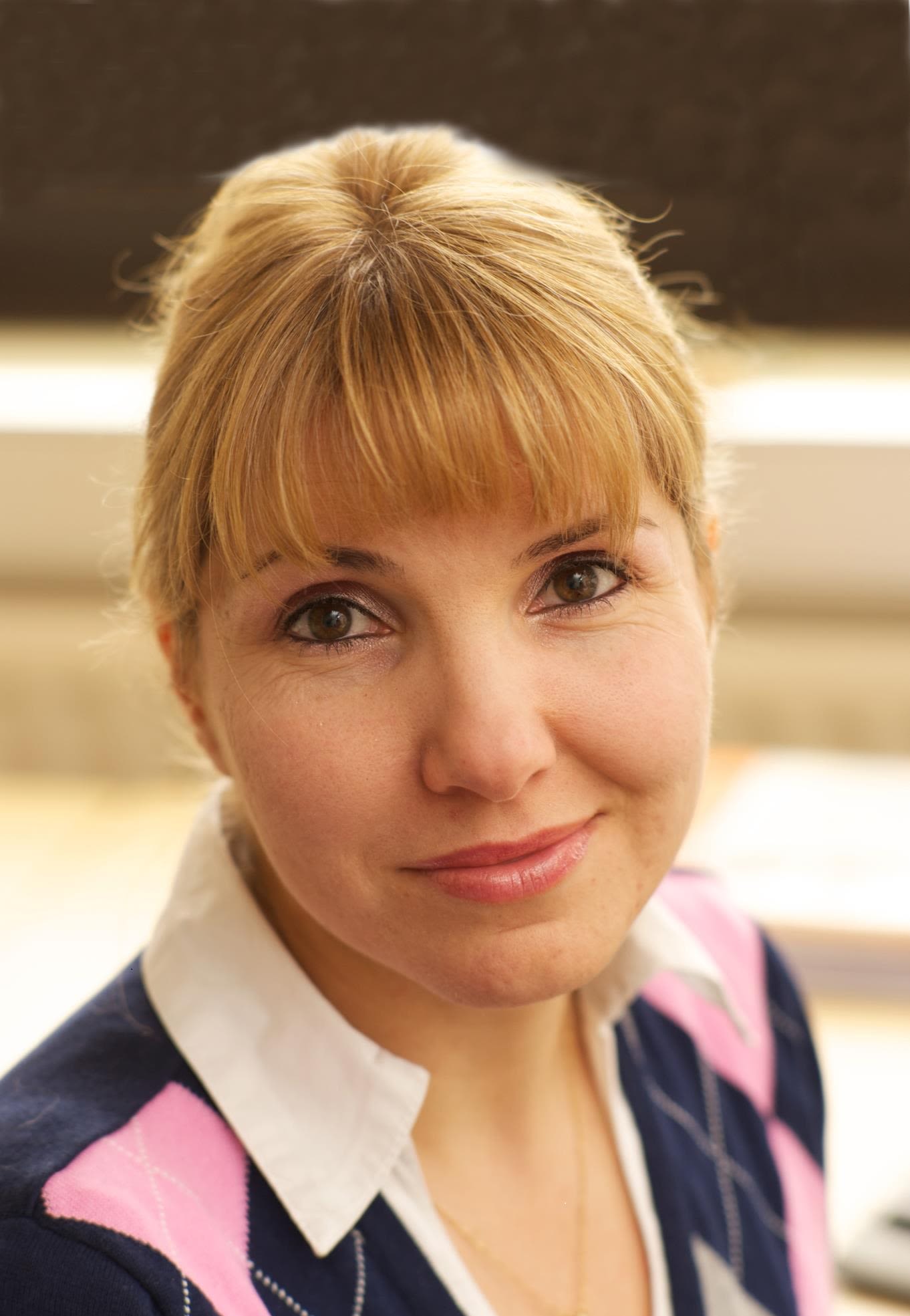
Irina Sandu
Science Lead for Destination Earth
Area: Earth system modelling
My background is in modelling of physical processes in our forecasts. Recently, I took on a new role as Science Lead for Destination Earth. So, I am very much looking forward to steering the science underpinning the highly accurate digital twin, or replica, of Earth that we will develop in this exciting initiative of the European Commission.
I am passionate about the impact of my work on people’s lives through forecast quality, and the stimulating interactions with other scientists. My advice for any scientist: always ask questions, even if it’s not easy! Fact-based criticism is healthy and necessary for advancing science.
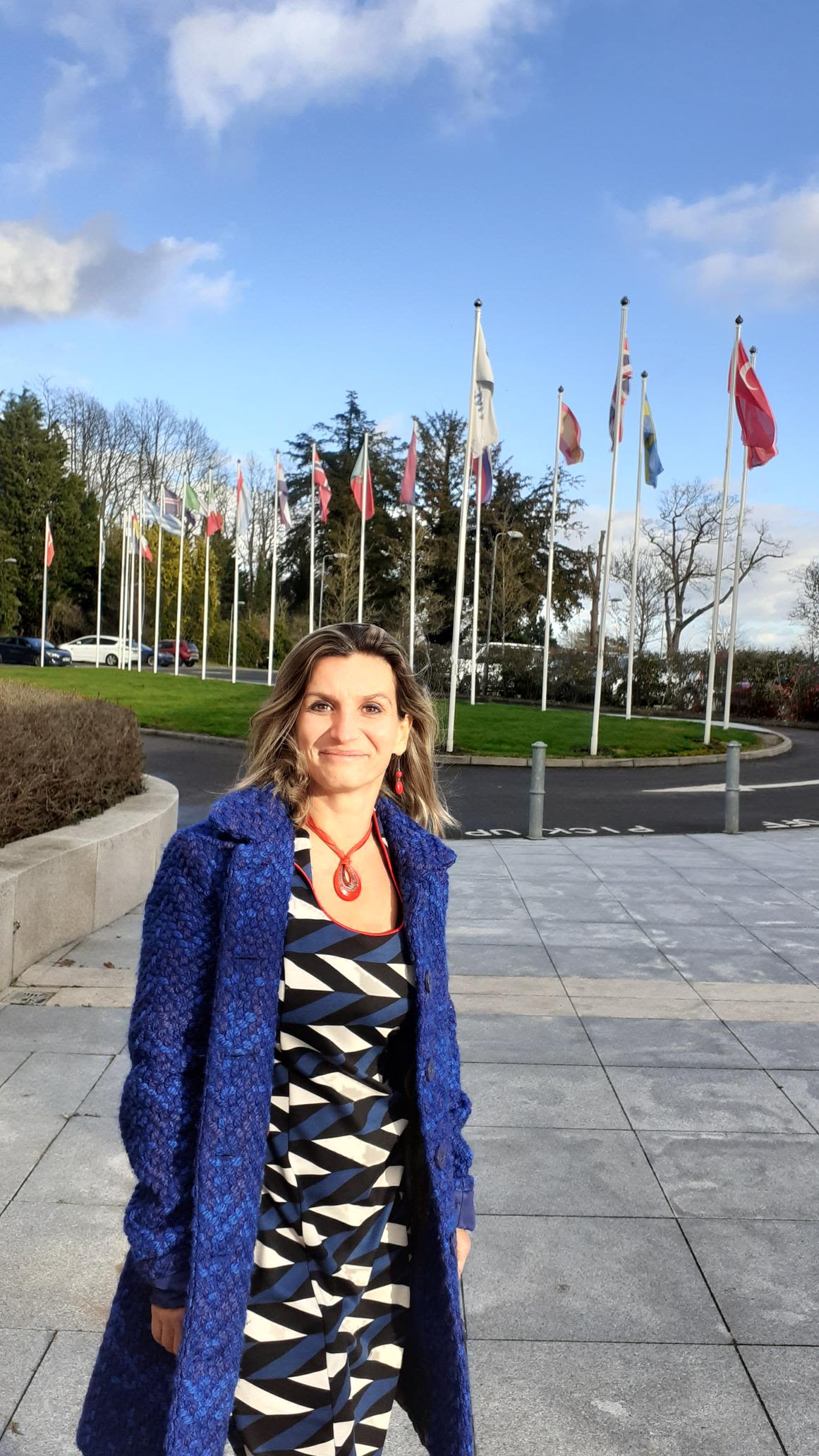
Angela Benedetti
Senior Scientist
Area: Bringing information on clouds and aerosols into forecasts
My first love is clouds, but for many years I have worked on how to use information on aerosols when generating forecasts. I would like to see the full potential of data on visible radiance from clouds used to improve numerical weather prediction. My current motto is ‘a new look at old data’ – it’s exciting!
Women in science often lack confidence and experience ‘imposter syndrome’. I would like them to believe that, if they love what they are doing, they are exactly where they should be. It's only by working together, across gender, cultural and social differences that we can achieve our goals.
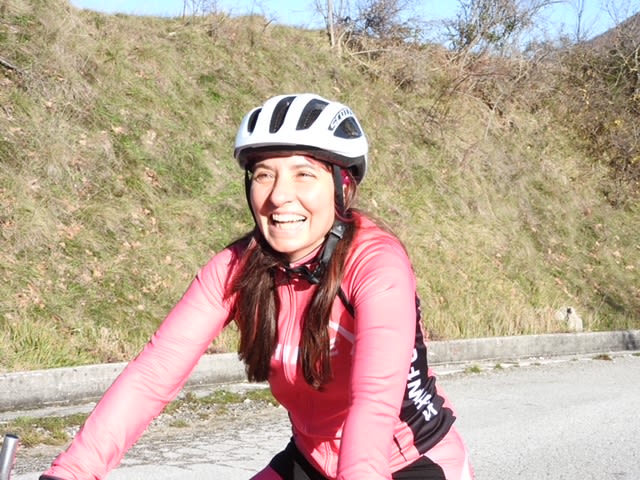
Sam Burgess
Deputy Director, Copernicus Climate Change Service
Area: Enabling businesses and decision-makers to understand climate risk
Climate change impacts us all, and data show the climate emergency is accelerating as emissions continue to rise. My responsibilities include directing the climate intelligence, observations, variables and indicators, and quality assurance aspects of the programme. Data and information about climate change should be accessible to everyone, and I feel privileged to be doing a job that aligns with my personal values.
Diversity is vital for effective decision-making. In climate science, women are particularly under-represented as are many other minority groups. My advice to everyone is to feel confident to share your knowledge and expertise and always encourage increased diversity.
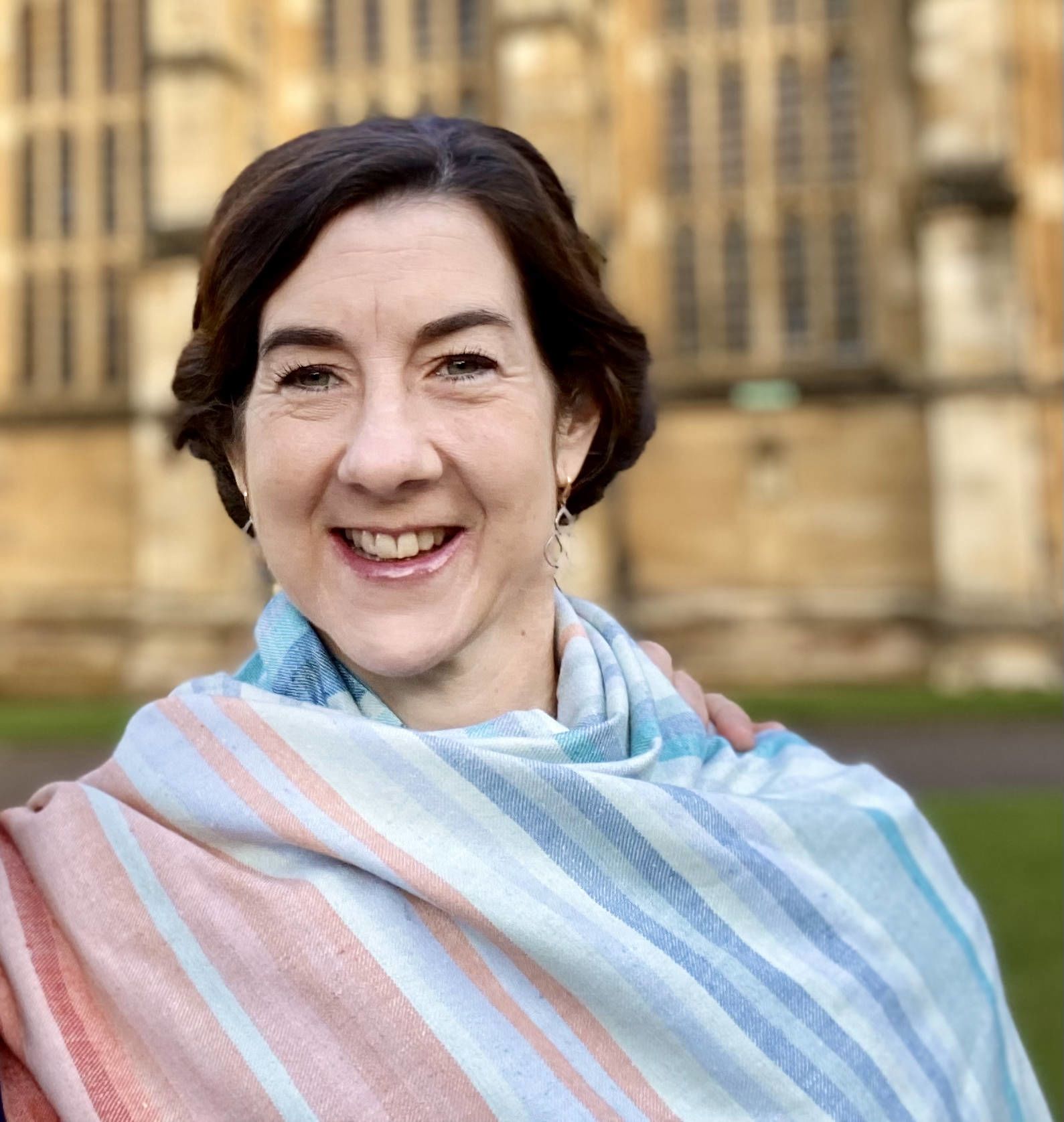
Katrin Lonitz
Scientist
Area: Bringing satellite data into weather forecasts
Staying curious is essential to me; to keep thinking outside the box and to collaborate with colleagues to make the world – or in my case the weather forecast – a little bit better. My work focuses on bringing satellite data into our numerical weather prediction systems, which improves the quality of the forecast for users.
When I was younger, there were situations where I wasn’t taken seriously, or I wasn't listened to. If others experience the same, they shouldn’t be intimidated. Remain calm, speak up and repeat yourself – you deserve to be heard!
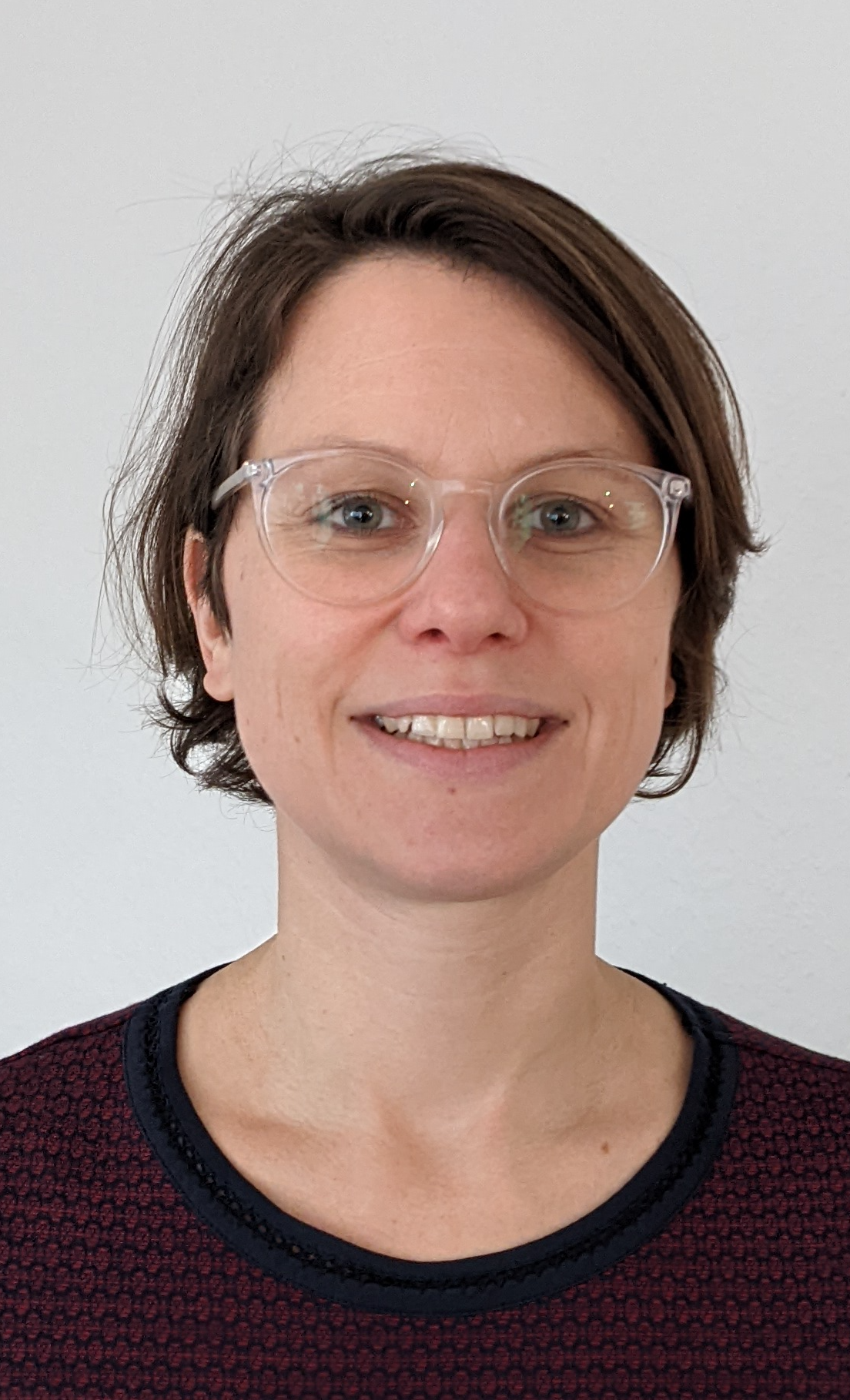
Inna Polichtchouk
Scientist
Area: Improving the representation of dynamic processes in forecasts
My aim is to continue learning about how the atmosphere behaves, particularly circulation in the stratosphere. I enjoy the challenges and opportunities of very high-resolution modelling, and have recently become interested in the representation of tropical cyclones. I hope my research will enable a better understanding of the atmosphere, inspire other scientists, and lead to better weather forecasting and therefore save lives and protect the economy.
Ultimately, I want to transfer my knowledge to other scientists. My advice to them is to be passionate and enthusiastic about your work. Ask questions, be open minded and do not be afraid to re-evaluate your understanding.
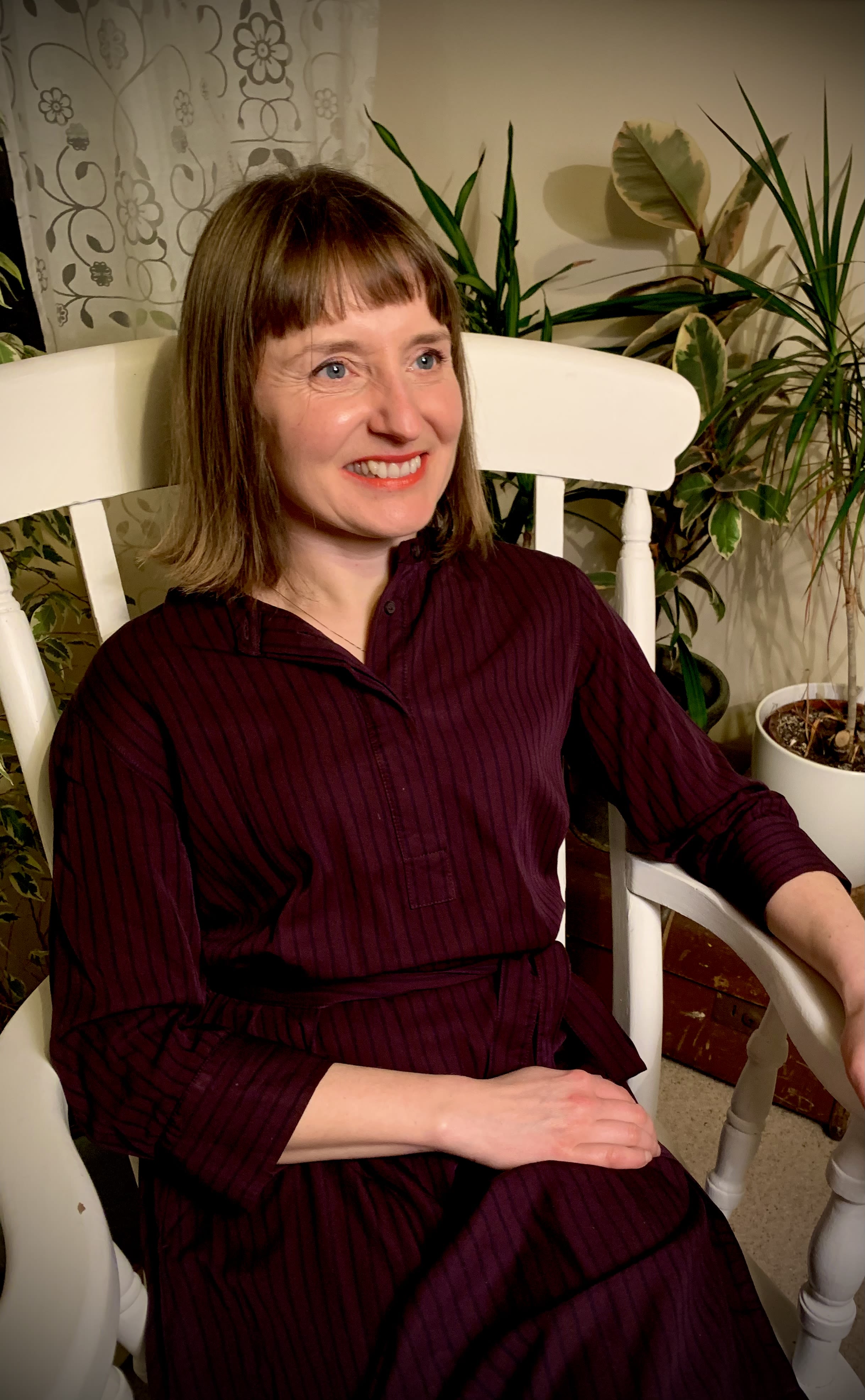
Tracy Scanlon
Scientist (EUMETSAT Fellow)
Area: Making best use of satellite-borne instruments
Satellite-borne instruments are an amazing resource. My work at ECMWF is around adding new data streams from satellite measurements, and refining how they are processed, to help improve forecasts. My aim is that users will be able to better understand our planet, whether it be through long-term climate products or shorter-term weather forecasting.
My advice for anyone working in science is to always have confidence in yourself and to take opportunities when they arise, even if it means changing your life. For example, being able to contribute to the work of ECMWF is very exciting and rewarding.
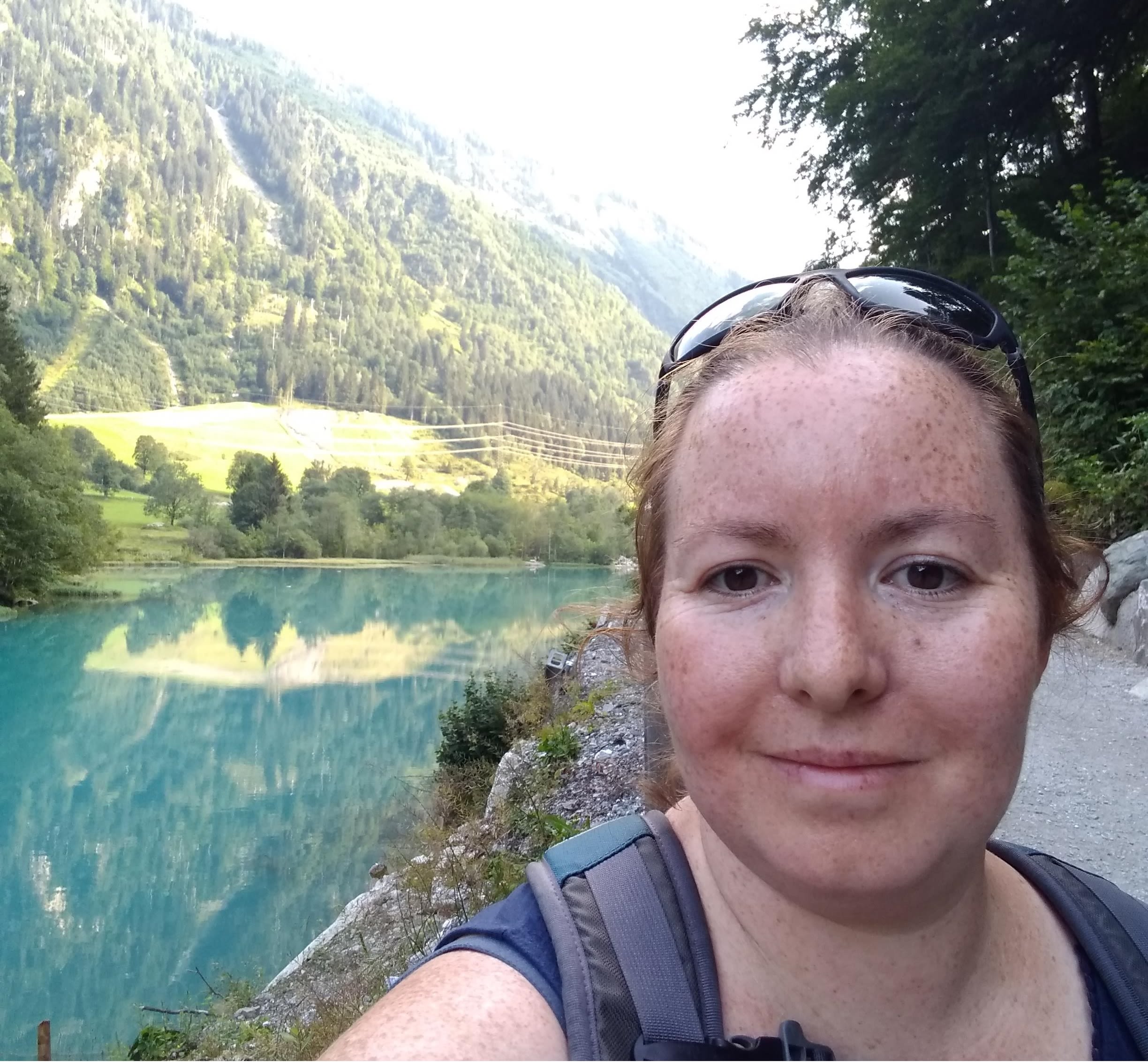

About the International Day of Women and Girls in Science
In 2015, the United Nations General Assembly declared 11 February as the 'International Day of Women and Girls in Science' in order to achieve full and equal access to and participation in science for women and girls, and further achieve gender equality and the empowerment of women and girls.
The aim was to fill a significant gender gap in the areas of science, technology, engineering and mathematics (STEM) disciplines across the world.
Science and gender equality are both vital for the achievement of the internationally agreed development goals, including the 2030 Agenda for Sustainable Development. Over the past decades, the global community has made a lot of effort in inspiring and engaging women and girls in science. Yet women and girls continue to be excluded from participating fully in science.
© Copyright 2022
European Centre for Medium-Range Weather Forecasts, Shinfield Park, Reading, RG2 9AX, UK
The content of this web page, excluding images representing individuals, is available for use under a Creative Commons Attribution 4.0 International Public License. See the terms at https://creativecommons.org/licenses/by/4.0/
To request permission to use images representing individuals, please contact pressoffice@ecmwf.int
The information within this web page is given in good faith and considered to be true, but ECMWF accepts no liability for error or omission or for loss or damage arising from its use.
